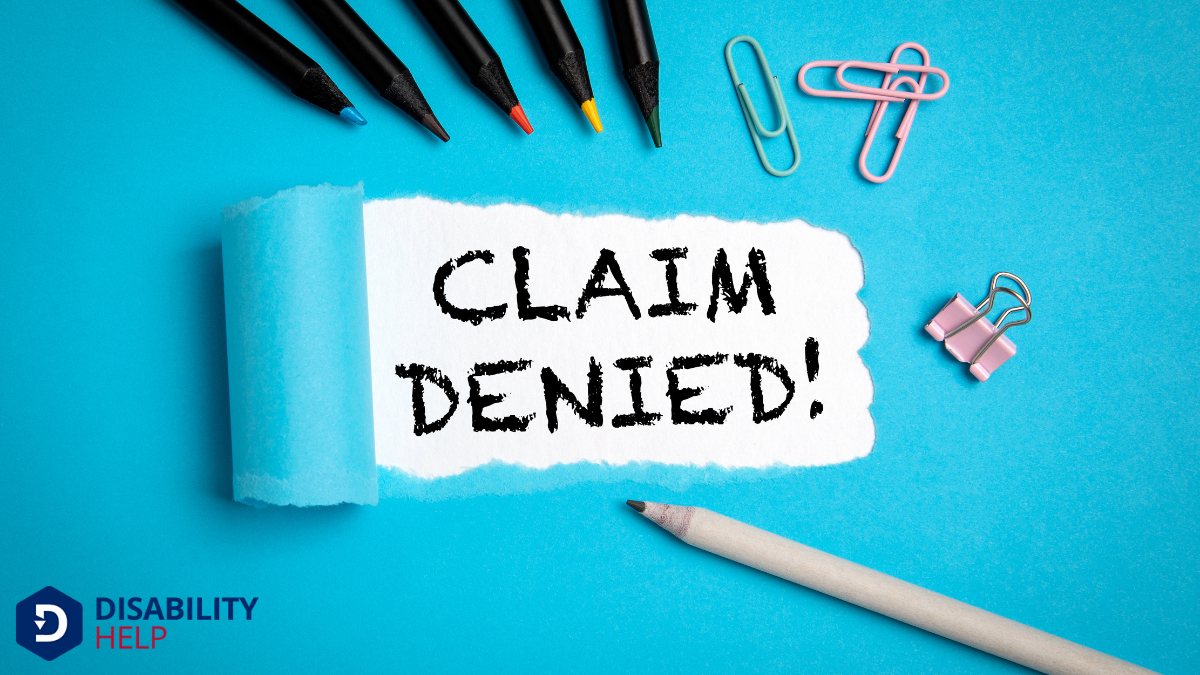Maneuvering the world of workers' compensation can feel overwhelming, especially when you're dealing with an injury. You might find yourself wondering if your job can deny you the benefits you thought were guaranteed. It's not uncommon for claims to be denied, but understanding why and what steps to take next is essential. Let's explore the ins and outs of this process, ensuring you're well-equipped to handle any surprises along the way.
Key Takeaways
- Employers cannot legally deny workers' comp if state guidelines and reporting requirements are met.
- Workers' comp is a no-fault system, not requiring proof of fault for coverage.
- Claims may be denied for missed reporting deadlines or insufficient injury documentation.
- Employers must inform employees about injury reporting and claims filing procedures.
- Legal recourse is available if a workers' comp claim is unjustly denied.
Understanding Workers' Compensation Basics
Maneuvering the world of workers' compensation can seem intimidating, but understanding the basics is vital for protecting your rights.
When you get injured at work, you might wonder if you're eligible for workers' comp. Let me assure you, this insurance is designed to cover medical expenses and lost wages for employees who suffer job-related injuries or illnesses.
It's important to report your injury promptly to initiate the claim process. Each state has specific rules, so knowing your state's guidelines helps. Often, you won't need to prove fault; workers' comp is generally a no-fault system.
Common Reasons for Claim Denial

When I first looked into workers' comp claims, I was surprised by how often they're denied due to insufficient injury documentation or missed reporting deadlines.
It's essential that you document your injury thoroughly and report it promptly to avoid these pitfalls.
Also, make sure your incident is clearly work-related, as claims linked to non-work-related incidents often face denial.
Insufficient Injury Documentation
Although it might seem straightforward, insufficient injury documentation is a common reason workers' comp claims get denied.
When you're hurt at work, it’s essential to provide thorough details about your injury. Without proper documentation, your claim could hit a roadblock.
To strengthen your documentation, consider these tips:
- Detailed Medical Reports: Make sure your doctor’s reports are thorough, including diagnosis and treatment plans.
- Accident Description: Write a clear account of how and where the injury occurred, including witnesses if any.
- Consistent Records: Keep consistent records of all medical visits, treatments, and any communication with your employer.
- Photographic Evidence: If applicable, take photos of your injuries and the accident scene.
Missed Reporting Deadlines
Failing to meet reporting deadlines is another frequent reason workers' comp claims get denied.
When you're injured at work, it’s essential to report the incident immediately. Each state has specific deadlines, often ranging from a few days to a month. Missing these timelines can jeopardize your claim.
I understand it’s challenging to focus on paperwork when you're hurt, but prompt reporting is important. Notify your employer as soon as possible to make sure your rights are protected. Document the date and time of your report to avoid disputes later.
If you’re unsure about your state’s deadlines, check with your HR department or a legal professional. Acting quickly keeps your claim viable and helps you receive the benefits you deserve.
Non-Work-Related Incident
While timely reporting is critical, another frequent reason for claim denial is incidents deemed non-work-related. Your employer or the insurance company might argue that your injury didn’t occur while performing job duties. Understanding what qualifies as work-related is essential.
Here are some examples that might lead to denial:
- Off-duty injuries: If your injury happened during a lunch break off-site, it mightn't be covered.
- Commuting incidents: Typically, injuries during your commute aren’t considered work-related.
- Horseplay or rule violations: If you were injured while joking around or breaking safety protocols, coverage might be denied.
- Pre-existing conditions: Aggravation of a non-work-related condition could complicate your claim.
Knowing these can help you determine if your incident is truly work-related and guide your next steps.
Employer Responsibilities and Obligations
Understanding employer responsibilities and obligations is vital when it comes to workers' comp rights. As an employee, knowing what your employer must do can greatly affect your experience if you're injured on the job.
First, your employer must carry workers' compensation insurance to cover potential claims. They're also required to provide you with information on how to report an injury and the steps involved in filing a claim.
Additionally, they need to maintain a safe work environment to minimize risks. If you report an injury, your employer should file the claim promptly and not retaliate against you.
It's important for them to cooperate fully with the insurance company during the claims process, ensuring you get the benefits you're entitled to.
Steps to Take if Your Claim Is Denied
If your workers' comp claim is denied, don't panic; the first step is to understand the reasons behind the denial.
Once you know why, gather all necessary documentation that supports your case.
If the process feels overwhelming, consider consulting legal assistance to guide you through the next steps and improve your chances of a successful appeal.
Understand Denial Reasons
When your workers' comp claim gets denied, it's important to know the reasons behind the decision so you can take informed next steps. Understanding why can help you address the issues and potentially appeal the decision.
Here are some common reasons claims get denied:
- Insufficient Medical Evidence: The claim might lack enough documentation to prove the injury.
- Missed Deadlines: Failing to report the injury on time can lead to denial.
- Employer Dispute: Your employer may argue that the injury wasn't work-related.
- Non-qualifying Injury: Some injuries mightn't meet the criteria set by workers' comp laws.
Focus on identifying the specific reason for your denial. Once you know the reason, you’ll be better equipped to decide your next steps.
Gather Necessary Documentation
Although it might feel overwhelming, gathering the right documentation is vital after your workers' comp claim is denied. Start by collecting all medical records related to your injury. This includes doctors’ notes, test results, and any treatment plans.
Keep a detailed log of your medical visits and symptoms. It's important to have a timeline that shows your ongoing medical needs.
Next, gather any correspondence you’ve had with your employer or insurance company regarding your claim. Emails, letters, and phone call summaries can provide valuable context.
Don’t forget to document your work attendance, including any time off related to your injury.
Consult Legal Assistance
After organizing all necessary documentation, seeking legal assistance becomes your next step if your workers' comp claim has been denied.
Maneuvering through the legal system can be intimidating, and a qualified attorney can provide the expertise you need.
Here’s why consulting a lawyer is beneficial:
- Understanding Your Rights: They help clarify your rights and options under the law.
- Expert Guidance: They guide you through complex legal procedures and paperwork.
- Professional RepresentationThe way people with disabilities are depicted in media, culture, and politics, often influencing pub...: They represent you in hearings and negotiations, ensuring your case is heard.
- Maximizing Compensation: They work to secure the best possible compensation for your situation.
Don’t hesitate to reach out for help.
It’s essential to act promptly, as there might be deadlines for filing appeals.
A lawyer can make a significant difference.
Legal Recourse and Appeals Process

Steering through the legal recourse and appeals process for workers' compensation claims can feel overwhelming, but understanding your rights is vital.
First, if your claim is denied, don’t panic; you have the right to appeal. I recommend reviewing the denial letter thoroughly to understand the specific reasons. This will help you gather the necessary evidence and documents to support your case.
Next, file your appeal promptly, as deadlines are strict. Each state has its own procedures, so check your state's specific guidelines. Often, you'll need to submit a formal written appeal.
During this process, you might attend hearings where you can present your case. It’s important to be prepared, organized, and persistent. Remember, seeking legal advice can provide invaluable guidance.
Tips for Ensuring a Successful Claim
When you're filing a workers' compensation claim, laying a solid foundation is key to success. To guarantee your claim is strong, start by documenting everything meticulously. I’ve learned that clarity and thoroughness can make all the difference.
Here are some tips I found helpful:
- Report the injury immediately: Don’t wait; inform your employer as soon as possible to avoid any disputes about timing.
- Seek medical attention: Even if the injury seems minor, get a medical evaluation. Medical records are vital evidence.
- Keep detailed records: Document all expenses, treatments, and communications related to the injury.
- Follow doctor’s orders: Adhering to medical advice not only aids recovery but also strengthens your claim.
Conclusion
In steering through the complexities of workers' compensation, it's essential to stay informed and proactive. If your claim's denied, don't panic—understand the reasons and take immediate steps to address them. Gather all necessary documentation, communicate effectively with your employer, and consider legal advice if needed. Remember, knowing your rights and the specific regulations in your state empowers you to tackle challenges head-on. Stay persistent, and you'll increase your chances of a successful claim.






